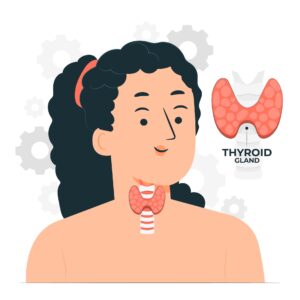Understanding Your Period: Menstrual Cycle and Health
Day two of my period arrived, and I was frustrated. My swimming routine, which had been progressing phenomenally over the past month, was on pause. I’d been swimming 1–1.3 km daily, and the idea of sitting out for four days was unbearable. Determined not to let my period interfere, I bought tampons. Though unaccustomed to them and finding them somewhat uncomfortable, I soldiered on for the sake of my swimming. Yet, after a swim, I felt bloated, fatigued, and heavy.
Like many women, I was ignoring my period and pushing through the day as if nothing was happening. Advertisements encourage us to “power through” with products that make us forget we’re menstruating. Sports academies, workplaces, and gyms rarely accommodate the natural ebb of energy during periods, often treating it as “mind over matter.”
Reflecting on my military training days, I remembered how several of us experienced missed periods due to extreme physical stress. Naturopathy has shown me how vital it is to listen to our bodies. Treating periods as an inconvenience rather than an opportunity can mean overlooking critical aspects of our health.
Your Period as a Health Check-In
For many women, periods are seen as a monthly nuisance. But what if we reframed this perspective? Our menstrual cycle is a built-in health barometer, offering insights into hormonal, emotional, and mental well-being.
One friend with premenstrual dysphoric disorder (PMDD) describes her pre-period days as feeling possessed by an “alter personality”—marked by uncontrollable rage, irritability, and food cravings. Another battles intense fatigue before her period. Yet another endures debilitating cramps and backaches, relying on painkillers to function.
For some, a “normal” period includes mild fatigue, subtle appetite changes, and a natural desire to withdraw from social and professional activities. The body craves warmth, rest, and nourishing foods. Sadly, even these relatively peaceful periods are often ignored in the rush of daily life. My period, for the last 12 years, had meant pain in the legs, stomach and lower back, with heavy bleeding.
The Physical Clues in Your Cycle
Menstrual health can reveal much about your overall physical state:
a. Blood Colour: Changes in blood color are generally normal but can signal hormonal imbalances or health issues if accompanied by abnormal symptoms like foul smells or grayish tones. For a deeper understanding, of hormones read Womancode: Perfect Your Cycle, Amplify Your Fertility, Supercharge Your Sex Drive, and Become a Power Source, by Alisa Vitti. Written by someone who suffered from PCOD , before the condition had a name. This book offers insights into hormone regulation, PCOS management, and how the endocrine system impacts overall female health.

b. Heavy Bleeding: Excessive flow paired with fatigue often signals anemia. Anemia and heavy periods can create a vicious cycle, leading to low oxygen levels in the blood. Over time, this can affect heart health. It can cause symptoms ranging from palpitations to more severe issues like mitral valve incompetence and low blood pressure.
c. Painful Cramps and Aches: Persistent pain during periods often indicates underlying issues. These often arise from an unclean colon or high acidity in the body.
d. Acne, pimples, and headaches : During your cycle show excess acidity in your blood.
e. Irregular Cycles: Frequent skipping or irregular periods signal conditions like PCOS, hypothyroidism, or endometriosis.
The Emotional and Mental Connection
Periods don’t just affect the body—they can deeply influence mental and emotional well-being. Many women feel their energy shift days before menstruation, a normal sign of hormonal changes. For a friend whose depression kicks in with her periods or a colleague whose irritability makes her fly off the handle at the smallest pretext, periods, are an unpleasant ordeal.
‘Premenstrual dysphoric disorder’, characterized by severe irritability, depression or anxiety is a real thing now. A person can feel like another personality has taken over their bodies during these times. Extreme mood swings and irritability, heightened anxiety or depression can indicate underlying mental health issues. The period merely brings to surface these conditions already growing in our mental and neurological systems.
Chronic sleep disturbances during menstruation can also point to neurological imbalances. If your sleep is disrupted for reasons beyond frequent pad changes, it’s worth exploring this connection further.
Periods and the Unconscious: A Yogic Perspective
For those who delve into yoga’s deeper teachings, the menstrual cycle offers a profound opportunity for self-awareness. Yogic philosophy aligns the endocrine glands with the body’s energy centers, or chakras. The Swadisthana chakra, located near the reproductive organs, governs the unconscious mind and emotions.
During menstruation, this chakra becomes more active, often surfacing suppressed thoughts, emotions, or memories through dreams, sensations and thinking patterns. fears and . Many women report unusual dreams or heightened emotions during their periods. Recognizing these as signals rather than distractions can lead to personal growth.
Spiritual teacher Eckhart Tolle writes in The Power of Now:
“For many women, the pain-body awakens particularly at the time preceding the menstrual flow. If you can stay alert and watch whatever you feel within, rather than be taken over by it, it affords an opportunity for transmutation of all past pain”
Making Peace with Your Period
Like many active, professional women, I once viewed my period as a hindrance—an obstacle to workouts, work deadlines, and travel plans. Over time, I’ve learned to embrace it as an opportunity for self-diagnosis and introspection.
Periods are nature’s way of urging us to slow down, reflect, and tune in to our physical, emotional, and mental health. By honoring this time, we not only address immediate health concerns but also gain deeper insights into our true selves.
Let’s stop dismissing our periods as a mere inconvenience and start using them as a gateway to better health and self-awareness. What’s your body telling you this month?




